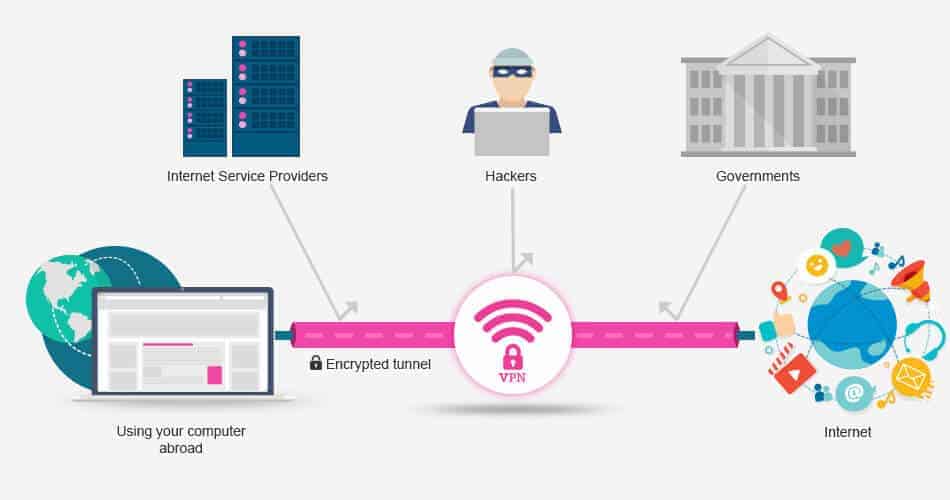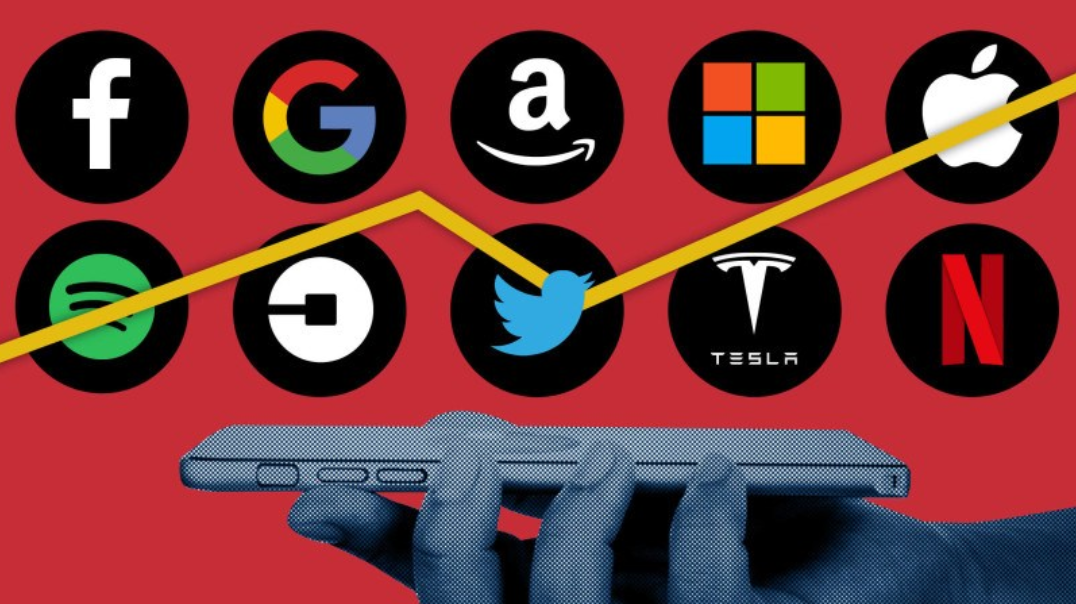Editor’s note: This was posted at Didacticmind.com.
I don’t pay much attention to the news – rather obviously. As Longtime Readers know, I tend toward General Sherman’s view of journalists, especially these days. I have made absolutely no secret of my utter hatred of never-to-be-sufficiently-cursed whorenalists and presstitutes of the lying (((media))). And I had long thought that they could not stoop any lower than they already have in terms of their level of sleaziness, corruption, and blind stupidity.
Wow was I ever wrong.
Recent developments in the world of technology drive several key lessons home. In case you haven’t been paying attention – and due to an extremely busy schedule, I generally have not – Parler, the Twitter “free speech alternative”, has effectively been destroyed because of outright collusion between the media and Big Tech.
Never mind that Parler itself is nothing more than a gatekeeping organisation with even WORSE security features than Twitter. And never mind that the entire idea of free social networking turns YOU into the product – because obviously in order to support something “free”, these companies all have to pay various costs. The fact is that what happened to Parler is a brutal and terrible lesson for all of us.
The Short Version
In a matter of mere days, Big Media pinpointed accounts used by Trump supporters who participated in the Storming of the Hill, on Parler. They then alerted their friends over at Amazon, Apple, and Google. The latter two deplatformed Parler from their app stores after giving them totally unrealistic deadlines to sort out some nonsense about “hate speech”. The folks at Amazon Web Services immediately swung into action to boot Parler off their servers with very little notice – in direct violation of their own terms of service.
In the space of 72 hours, Parler lost its hosting services, its app store presence, its legal team, and every single source of revenue.
And because of Big Tech market power and Big Media disinformation, no other provider will touch Parler now.
Just like that, a billion dollars in (probably largely fake) market value and an entire company were wiped out.
If that doesn’t worry you, then either you’re not paying attention, or you’re quite safe from Big Tech.
Those in the latter camp can safely disregard anything that I have to say on the subject. You’ve taken proactive steps to protect yourself, and that’s good. But for those of you who are in the former camp… here are just SOME of the things that you can do to break Big Tech’s grip on you, your data, and your life.
1. Protect Your Web Presence

The days in which most people used either The Onion Router (TOR) Network, or a private VPN, purely for entertainment purposes, are well and truly OVER. This isn’t about living in the USA and watching TV and movies from the UK and German versions of Netflix to get around licensing restrictions anymore. It’s about outright self-protection.
Let me give you a very simple example. You are my readers and I have always been honest with you. Did you know that when you leave a comment in WordPress, the following all show up in the comments moderation?:
- Your chosen login name;
- A provided email address;
- A site URL (if you provided one);
- Your IP address under which you logged that comment;
That is all data that can be used to track you – especially your IP address.
Now, let me be absolutely clear: I don’t track any of that, and UNDER NO CIRCUMSTANCES will I ever give away or sell ANY of the above information to anyone else. But that should give you some idea of just how easy it is to track you.
If you want to be more secure when surfing, download and install the TOR client on your PC. Or, install it into your web browser. Here’s a video explaining how it works. If you want to take your cybersecurity a step further, pay for a proper VPN client. I recommend Surfshark for the best features at the best value around, or GooseVPN for simple, no-nonsense browsing.
Here’s an exercise to see how effective such a solution really is. This is my current IP address at time of writing:
84.17.39.131
You can run a trace on that IP address to figure out where I am. Except I’m not there – not even close. See how that works?
2. Build Your Own Platforms
Do what I did with my site. Don’t pretend that you can build a robust, stable business using free tools like Blogger and WordPress.com for your site, Amazon Publishing for ebook sales, and Facebook/Twitter/Google SEO to drive your sales.
Build your own site. Figure out how to sell your physical product directly through that site to your readers and customers. Market your skills, share your knowledge, expand your “moat” – so that when Big Tech tries to storm your castle, at least it will be a bloody hard fight for them.
- Get yourself a proper domain for your site or business with Namecheap;
- Put your site onto a shared hosting service using A2Hosting for the fastest, most secure, and stable hosting platform around;
- Create beautiful websites with amazing, feature-rich content using Divi from Elegant Themes;
3. Break Away from the Cult of Free
As our beloved and dreaded Supreme Dark Lord (PBUH) pointed out, if you are using a free product or service to build your business and brand, YOU ARE PART OF THE PROBLEM. That is not to say that you MUST not use free stuff, but you need to be aware that if you use a free platform to build your business, YOU are the product and YOU are lulling yourself into a false sense of security. The only way to make yourself antifragile is to start paying for the privilege. You get what you pay for, after all.
4. Get Your Data OFF the Cloud
Don’t upload personal files onto Google Drive, Dropbox, or anywhere else. Keep those files on your PC and use hard drives to back them up.
It’s not difficult to do. But you do need to keep a few things in mind about backing up your physical data. No hard storage medium is immune from wear and tear. And hard disc drives (HDDs) and solid state drives (SSDs) wear out in different ways. The former wears out mechanically, whereas the latter wears out electronically – and both WILL degrade over time through usage.
But they are inexpensive and secure compared to cloud-based storage. If you are backing up your sensitive data and files on the cloud, you need to have your head examined.
These days, external HDDs are cheap, easily available, and highly reliable. You can get a Western Digital 4TB external HDD for under $100. That has a roughly 80% probability of surviving four years and about a 50% chance of lasting you six years. But it is not uncommon to find people with HDDs in their possession that still work 10 years later.
If you elect for an SSD option, you can get a WD 1TB external SSD for about $150. That will last you through roughly 700 terabytes of data reading/writing. Considering that most laptop SSDs cap out at 2TB, that’s an enormous amount of data and you can be pretty sure that this will meet your needs for over a decade.
Now compare that with paying Google, Microsoft, Dropbox, or others anywhere from $25-$150, every single year, for 100GB-2TB worth of storage that can be hacked or lost easily. As the old saying about poker goes – if you can’t figure out who the sucker is in that deal, it’s YOU.
5. Move Away from Microsoft

Ah, yes, the original Evil Big Tech company (at least, in popular imagination). Protect yourself from Microsoft’s Big Tech ambitions – it’s not difficult. If you’re still using Microsoft Windows for anything other than gaming… STOP. Switch to Linux. Various Ubuntu-based Linux distributions have become so fast, stable, and easy to use that they now function as near-complete replacements for Windows, and can now do a lot more in some areas.
For instance, I’m using Linux Mint 20 right now while working an all-WinDOZE infrastructure for my studies. I haven’t had the slightest problem. LibreOffice is significantly easier to use than Office 365 and comes with VASTLY more features as standard – for free. If i absolutely need to use the fully caffeinated version of MS Office, I have it installed on a VirtualBox VM that I can spin up whenever I need it.
And given the situation with the Kung Flu lockdowns, where we are doing everything virtually, I don’t face any issues because Linux Mint handles Skype, Zoom, WhatsApp, Viber, Telegram, Signal, and even Microsoft Teams as built-in applications without ANY problems.
Maybe you HAVE to use Microsoft software – I do. But you no longer have to be tied to their operating system, at the very least. Which means, among other things, that they can’t brick your computer with one of their endless and highly intrusive update cycles. And they can’t force you to update your software just to keep it working either.
6. Break Out of the Goolag

No company epitomises the evil of Big Tech like Google, so protect yourself from them. If you’re using Gmail, consider moving to non-US mail providers in Europe. Proton Mail only allows you 50GB worth of service for their free version – but then, remember what I said above? STOP EXPECTING TO DO EVERYTHING FOR FREE. If you want something good out of life, be prepared to invest something into it. Plus, Proton Mail is a Swiss company, rather than a Euzi one. And if anyone understands the importance of privacy and discretion, it’s the Swiss.
Alternatively, if you don’t want to pay the start up your own site and get your own domain-hosted email that Big Tech can’t touch easily. If you use A2Hosting, for instance, you can create as many email accounts as you want, tied directly to your chosen domain names. You can then link those up to your chosen email clients, like Thunderbird or Evolution for Linux, or Microsoft LookOut (*eyecross*) for WinDOZE.
You can ditch Google for web searches simply by switching to DuckDuckGo. Throw Google Chrome out and – if you MUST use a memory suck like it – use open-source Chromium instead. You can also use Brave for web browsing, which uses a fundamentally different form of synchronisation that YOU control.
Sadly, we are more or less stuck with Google’s Android in the devices world for the moment. But I do think that this will change over the coming years.
7. Start Investing in Alternative Currencies
Right now, Bitcoin and other cryptocurrencies are highly speculative. That’s not surprising. They are very volatile and backed by nothing. But then, neither are any “legitimate” fiat currencies. Right now, most Bitcoin mining companies are seeing record-breaking numbers of new subscribers. Mining capacity is largely sold out. But once it comes back online, I’ll send you my Genesis Mining discount code so that you can take advantage of some great offers. If you can transact in cryptocurrencies, you immediately break the ability of Big Tech to stop you from accessing funds when they deplatform you, take away your bank account through collusion with Big Finance, and take away your livelihood by eliminating your PayPal and Patreon accounts.
Conclusion – This is Not Optional
It’s important to understand that there is no such thing as absolute safety. You have to take risks. If you have an online presence, you need to realise that you are vulnerable. As with everything else in life, it’s all about managing your exposure and risks.
You must also understand that none of what I told you above is optional anymore. You must protect yourself from the Big Tech tyrants. They view you as nothing more than a commodity to be exploited. If you don’t do at least some of these things that I advise, you are a damned fool.
Take these simple steps. Protect yourself from Big Tech. Win back your freedom.









